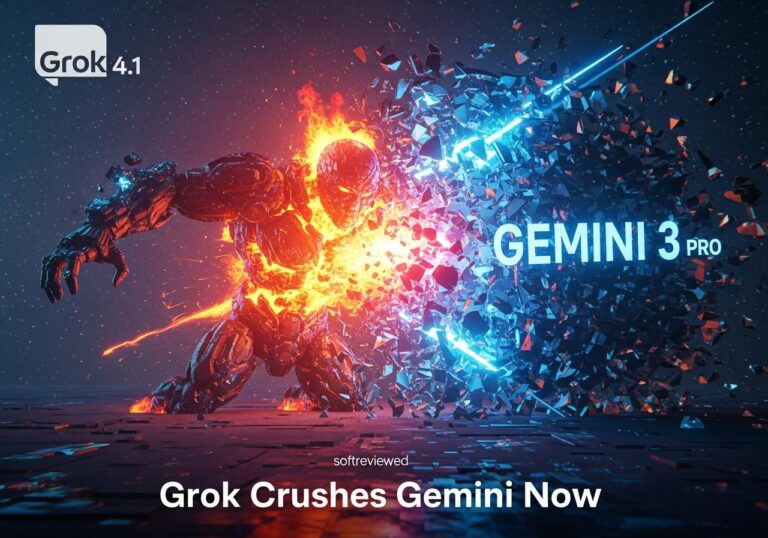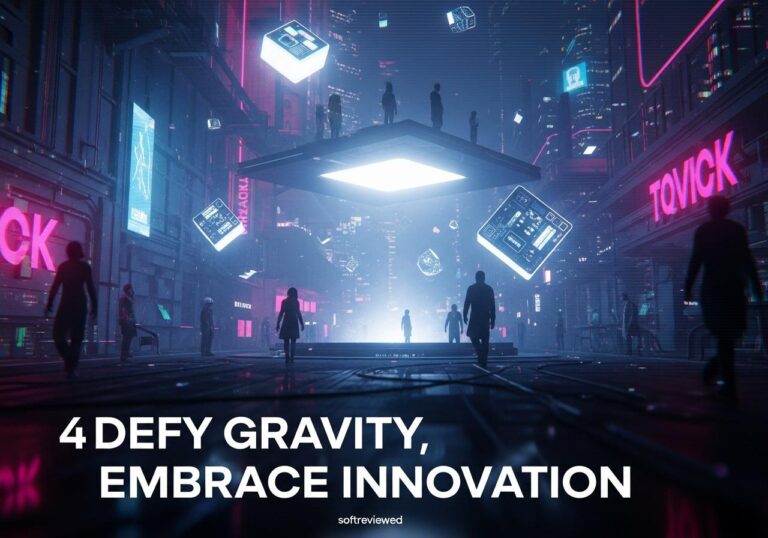OpenAI Jobs Platform: The Future of AI Recruitment
Launching in 2026, OpenAI’s Jobs Platform will revolutionize how companies connect with AI talent and how workers develop AI skills in the evolving job market.
AI-Powered Job Matching Technology
OpenAI’s Jobs Platform will use artificial intelligence to create precise matches between companies’ needs and workers’ AI skills, potentially offering more accurate connections than traditional job platforms.
Comprehensive AI Certification Program
The platform includes AI certification programs ranging from basic AI workplace skills to advanced prompt engineering, with training available directly through ChatGPT’s Study mode.
Launch Timeline: Mid-2026
The OpenAI Jobs Platform is expected to launch in mid-2026, giving both employers and job seekers time to prepare for this new AI-focused recruitment ecosystem.
Major Corporate Partnerships
OpenAI has partnered with industry leaders including Walmart, John Deere, Boston Consulting Group, Accenture, and Indeed to ensure broad adoption across multiple sectors.
Local Business and Government Support
The platform will feature dedicated tracks for local businesses and government agencies, helping smaller organizations compete for AI talent and modernize their operations.
Economic Opportunity Focus
OpenAI positions the platform as a solution to AI-related job displacement concerns, aiming to create new opportunities and help workers transition to “Superworker” status in an AI-driven economy.
OpenAI's Bold Move Into Professional Networking Territory
OpenAI is making a significant expansion beyond ChatGPT by developing an AI-powered hiring platform that directly challenges LinkedIn's dominance in professional networking and recruitment. The OpenAI Jobs Platform, set to launch by mid-2026, represents a strategic shift toward comprehensive AI-native services that could reshape how people find jobs and how companies recruit talent.
What Makes OpenAI's Approach Different
The OpenAI Jobs Platform will use artificial intelligence to create more precise matches between employers and job seekers, focusing specifically on AI skills and competencies rather than traditional qualifications. Unlike conventional job boards that rely on keyword matching and basic filters, this platform will analyze candidates' actual AI capabilities and match them with companies that need those specific skills.
The platform targets three main groups: large corporations seeking AI talent, small businesses competing for skilled workers, and local governments looking to improve public services through AI expertise. This inclusive approach aims to democratize access to AI-skilled professionals across all organization sizes.
Fidji Simo, OpenAI's CEO of Applications and former Instacart leader, emphasized that the service will "use AI to help find the perfect matches between what companies need and what workers can offer." The platform will host experienced candidates at every level while creating opportunities for anyone looking to apply their AI skills practically.
The Skills-First Revolution OpenAI Is Banking On
AI Certifications Through OpenAI Academy
OpenAI is launching a comprehensive certification program alongside its jobs platform. These certifications will cover different levels of "AI fluency," from basic workplace AI usage to advanced skills like prompt engineering and AI customization. The program builds on the existing OpenAI Academy, which already serves over 2 million users with free AI learning resources.
The certification process will be integrated directly into ChatGPT through its Study mode, allowing candidates to prepare for and complete certifications without leaving the app. Companies can also integrate these certifications into their internal learning and development programs.
OpenAI has committed to certifying 10 million Americans by 2030, partnering with major employers like Walmart, John Deere, Boston Consulting Group, and Accenture to achieve this goal.
Skills-Based Hiring Meets AI Technology
The timing aligns perfectly with the broader shift toward skills-based hiring in the job market. Research shows that companies using skills-based searches are 12% more likely to make quality hires compared to traditional degree-focused approaches. AI recruiting tools have demonstrated significant improvements in candidate matching, with AI-selected candidates being 14% more likely to pass interviews and 18% more likely to accept job offers.
LinkedIn's Current AI Initiatives and the Competition Ahead

LinkedIn hasn't been standing still. The platform has rolled out several AI-powered features for 2025, including:
📌 AI-Assisted Search that understands context and meaning beyond simple keyword matching
📌 AI-Assisted Messaging with 44% higher acceptance rates compared to non-AI messages
📌 Hiring Assistant – an AI agent that automates time-consuming recruiting tasks
📌 Real-time candidate insights and dynamic market data integration
LinkedIn's AI features are already saving recruiters significant time, with early adopters of their Hiring Assistant reporting over 4 hours saved per role and 69% improvement in InMail acceptance rates.
Market Dynamics and Business Implications
The Microsoft Connection Complexity
The competitive situation creates an interesting dynamic since Microsoft owns LinkedIn and is OpenAI's largest investor with approximately $13 billion committed. Microsoft has already classified OpenAI as a competitor in areas like search and news advertising, and this jobs platform adds another layer to their complex relationship.
Reid Hoffman, LinkedIn's co-founder, was one of OpenAI's early investors, making the competition even more intriguing from a business perspective.
Growing Demand for AI Skills
The job market data strongly supports OpenAI's strategy. Unique job postings requiring generative AI skills have grown from just 55 in January 2021 to nearly 10,000 by May 2025. Job postings requiring generative AI skills in non-IT roles increased 9x from 2022 to 2024, while similar postings in IT roles jumped 35x.
Companies across industries are actively seeking AI-skilled workers, with studies showing that AI-savvy employees are more valuable, productive, and better compensated than those without AI expertise.
Key Features and Expected Capabilities
For Job Seekers:
📌 AI-powered skill assessment that goes beyond traditional resume screening
📌 Personalized job matching based on demonstrated AI capabilities
📌 Integrated learning pathway from certification to employment
📌 Study mode in ChatGPT for convenient certification preparation
For Employers:
📌 Skills-verified candidate pool with validated AI competencies
📌 AI-driven candidate matching for better hiring outcomes
📌 Access to certified talent across all skill levels
📌 Support for volume hiring and specialized AI roles
For Organizations:
📌 Dedicated tracks for small businesses and local governments
📌 Integration capabilities with existing learning and development programs
📌 Community organization partnerships for broader talent access
Challenges and Considerations
Market Penetration Against Established Networks
LinkedIn's massive professional network of over 1 billion members generates 5 million new data points every minute. Breaking into this established ecosystem requires more than just better AI – it needs compelling reasons for both job seekers and employers to switch platforms or use multiple services.
Skills Verification and Quality Control
While AI certifications sound promising, the job market will need to validate their real-world value. Employers must trust that OpenAI's certifications accurately represent candidates' capabilities, and job seekers need confidence that these credentials will be recognized and valued.
Data and Privacy Concerns
As with any AI-powered platform handling professional and personal data, privacy and data security will be critical concerns. OpenAI will need robust safeguards and transparent policies to build user trust.
Industry Expert Perspectives
Recruitment industry analysts are watching this development closely. Josh Bersin, a leading workplace analyst, noted that OpenAI's approach mirrors LinkedIn's original vision from 2008 but focuses on AI skills rather than general digital literacy.
The platform addresses a real market need, as many employers struggle to find candidates with proven AI competencies. Traditional recruitment methods often fail to accurately assess these emerging skills, creating opportunities for specialized platforms.
Timeline and Implementation
Expected Launch: Mid-2026
📌 Late 2025: Pilot launch of OpenAI Certifications program
📌 Mid-2026: Full platform launch with job matching capabilities
📌 2030 Goal: 10 million certified Americans through partnership programs
Current Status:
📌 Partnership development with major employers and organizations
📌 Platform development and AI system training
📌 Certification program design and curriculum creation
What This Means for Your Career Strategy
For Job Seekers:
Consider getting ahead of the curve by engaging with OpenAI Academy's free resources now. As AI skills become increasingly valuable, early certification could provide competitive advantages in the job market.
For Employers:
Start thinking about how AI skills fit into your hiring strategy. The shift toward skills-based hiring is accelerating, and companies that adapt early will have better access to qualified talent.
For HR Professionals:
Monitor both platforms' developments. The competition between OpenAI and LinkedIn will likely drive innovation in recruitment technology, potentially benefiting hiring teams with better tools and capabilities.
The Broader Impact on Professional Networking
OpenAI's entry into professional networking represents more than just another job platform – it signals a fundamental shift toward AI-native career services. This could influence how professional relationships form, how skills are validated, and how career paths develop in an AI-driven economy.
The success of this platform will largely depend on whether OpenAI can create genuine value for both job seekers and employers, beyond just leveraging AI as a marketing advantage. The real test will be whether AI-powered matching actually produces better career outcomes than traditional networking and job search methods.
As the 2026 launch approaches, both professionals and organizations should prepare for a more competitive and potentially more effective landscape in talent acquisition and career development.







